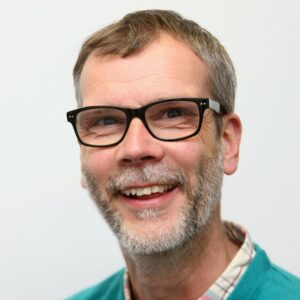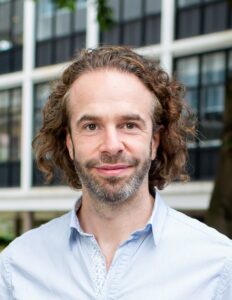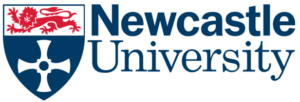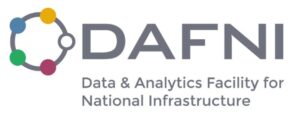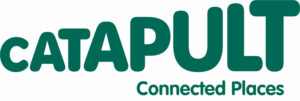Team
Academic Team
Richard is a Professor of Urban Planning and GISC at The University of Manchester and previously worked in planning practice before joining academia.
He aims to enhance stakeholder involvement and participation in spatial decision making.
Richard’s research brings together: Public Participation GIS, Spatial Analysis and Data Science, and Smart Cities.
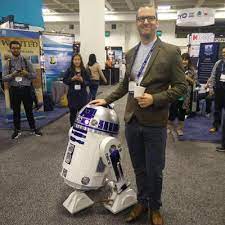 Dave is a Professor of the Digital Environment within the department of Earth and Environmental Science, working for many years in modelling the evolution of atmosphere.
Dave is a Professor of the Digital Environment within the department of Earth and Environmental Science, working for many years in modelling the evolution of atmosphere.
An atmospheric scientist by trade, David has also spent many years working at the on smart city-environment-IoT projects and now spends most of his time working at the AI-environment interface.
Dave is the Deputy director of the Digital Solutions Hub.
You can read a recent article he did about AI and the DSH here.
 Caroline was named as one of the Guardian’s Top 50 Women in Engineering 2022. Her research investigates the relationship between humans and technology across a wide range of areas, including health and the environment, creative media and software engineering.
Caroline was named as one of the Guardian’s Top 50 Women in Engineering 2022. Her research investigates the relationship between humans and technology across a wide range of areas, including health and the environment, creative media and software engineering.
She is Research Director of the Software Sustainability Institute and a Fellow of the Alan Turing Institute.
A Professor of Computer Science, Caroline is also a qualified psychologist and is a co-director of the DSH.
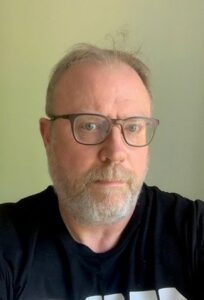 John is a professor of Health Informatics at The University of Manchester and previously worked in the telecommunications industry before joining academia.
John is a professor of Health Informatics at The University of Manchester and previously worked in the telecommunications industry before joining academia.
John works at the intersection of information technology and healthcare research focusing on applying information technology to improving health care and includes:
- Harnessing computing technology to enhance data science
- Using information technology to improve health services
- Applying emerging computing technologies to create novel interventions
John is a co-investigator on the Digital Solutions Hub, focussed on the healthcare use case.
More information to follow
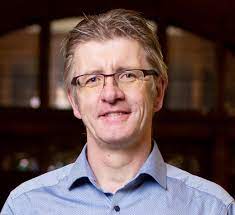 Hugh is Professor of Atmospheric Composition at The University of Manchester, Director of the Manchester Environmental Research Institute, Manchester site lead for the NERC National Centre for Atmospheric Science (NCAS) and visiting Professor at Fudan University.
Hugh is Professor of Atmospheric Composition at The University of Manchester, Director of the Manchester Environmental Research Institute, Manchester site lead for the NERC National Centre for Atmospheric Science (NCAS) and visiting Professor at Fudan University.
His research interests focus on quantifying processes responsible for air pollution and effects on regional climate. He has led and participated in numerous large international field studies to study amongst others biomass burning, trans-boundary air pollution, dust in the atmosphere, and the impacts of pollution on the clean background atmosphere. He has led a number of studies to investigate pollution in the UK, China and India and was the PI of a major international collaboration between India and the UK to characterise air pollution across the Indo-Gangetic Plain using international research aircraft. He has led and participated in a number of major UK air quality programmes and currently leads the UKRI CleanAir project OSCA. He is the 2022 recipient of the European Geophysical Union Vilhelm Bjerknes Medal.
Hugh is a member of the DSH Academic Leadership Team. He brings his expertise with large NERC Observational platforms and data sets to the DSH.
James Evans is a Professor in Geography and Director of the Manchester Urban Institute. His research focuses on how cities learn to become smarter and more sustainable. He is also co-founder of Urban 360, a University spin-out that provides integrated environmental monitoring solutions.
Currently James is researching how urban innovation drives sustainability, building on past work looking at urban living labs, smart cities, and governance. He has worked with more than 200 organisations across the UK, Europe, Africa and Asia.
James’ role in the DSH is to ensure urban partners are connected into the process and support the development of relevant use cases. This role builds on his experience leading large smart city projects, which involved working with large consortia of public and private organisations to develop, implement and evaluate solutions.
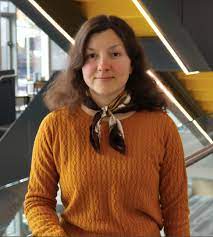 Maria Sharmina is Professor in Energy and Sustainability at the Tyndall Centre for Climate Change Research in the School of Engineering, and her background is economics and statistics.
Maria Sharmina is Professor in Energy and Sustainability at the Tyndall Centre for Climate Change Research in the School of Engineering, and her background is economics and statistics.
Her research focuses on sustainable business models for low-carbon energy and circular economy. Maria also has a keen interest in translating research into policy, and she served as Senior Academic Advisor with the Government Office for Science and Department for Business, Energy & Industrial Strategy (BEIS), working on the Net Zero Foresight project in 2021-2023.
Within DSH, she is working on business models for innovative digital services.
 Sarah is a Professor of Geography who has worked for more than 30 years on the application of Geographical Information Science to urban and environmental challenges.
Sarah is a Professor of Geography who has worked for more than 30 years on the application of Geographical Information Science to urban and environmental challenges.
Her most recent research considers the spatial dimensions of environmental processes related to urban green infrastructure; climate risks and adaptation; and human health and wellbeing. She led the development of the Climate Just resources, which aim to support more socially aware responses to climate-related challenges across the UK.
A hallmark of her research is close collaboration with research users and a commitment to beneficial environmental and social outcomes.
Sarah is co-investigator on the Digital Solutions Hub, focussed on the Climate Just use case.
Programme Management Team
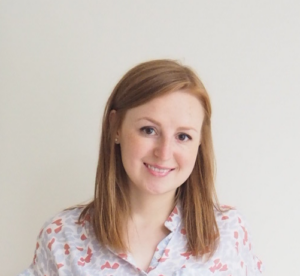 Jen has a PhD in Photon Physics at The University of Manchester in 2012. Life in a lab was not for her but wanting to stay connected to science and help facilitate research, she went to work for the Institute of Physics Publishing (IOPP) in Bristol.
Jen has a PhD in Photon Physics at The University of Manchester in 2012. Life in a lab was not for her but wanting to stay connected to science and help facilitate research, she went to work for the Institute of Physics Publishing (IOPP) in Bristol.
In 2021, Jen returned to Manchester as Project Manager for the UK’s £10m EPSRC-UKRI funded National Research Facility for lab-based X-ray Computed Tomography (NXCT, https://nxct.ac.uk/).
Jen is driven by helping knowledge seekers – whether that be academic researchers, policy makers or the general public – achieve their goals in answering important questions and/or implementing change.
As the Project Manager for the DSH, Jen is responsible for project, operational and financial management of the £7m programme as a whole.
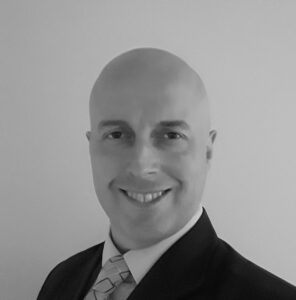
Andy is a business–focused technologist with over 20 years of IT industry experience, having held a wide range of leadership and technical roles across a variety of industry sectors.
Over that period, he has led and delivered numerous large-scale IT programmes, including the development of petabyte-scale data and analytics services and platforms within public sector to support organisational outcomes & policy objectives via data-driven insights.
Andy’s role as the Enterprise Architect / Chief Technologist is to provide architectural leadership and programme guidance for the Digital Solutions Hub. He works closely with the cross-functional DSH team along with the University of Manchester’s academic & research community, NERC, and other external partners.
Building upon his previous work in industry, a key focus for Andy is in applying IT techniques and best practice within this academic R&D context to facilitate successful programme and stakeholder outcomes.
Research Team

Nourhan has worked in academia and practice in the UK and globally since 2010. She was involved in delivering largescale EU- and UK-funded projects, with focus on Nature-based Solutions (NbS) and Climate Change Resilience in cities. Previous work includes award-winning IGNITION NbS Living Lab.
Nourhan’s passion lies in design for users and their networks, with interdisciplinary experience in architecture, planning, user networks and requirements engineering.
Nourhan is currently a Postdoctoral Research Associate at Digital Solutions Hub. Her role focuses on User Engagement, Requirements Engineering and Product Planning for Agile development of DSH.
Morteza is an AI specialist working on LLMs and how we can leverage their computational power to support DSH development.
 Oluwaseni is a Certified Business Analyst and an Associate Member of the British Computer Society (BCS) who has worked as a Business Process Analyst and Technical Business Analyst across the Healthcare and Tech industries, working within Agile cross functional teams to develop and deliver User Focussed Solutions.
Oluwaseni is a Certified Business Analyst and an Associate Member of the British Computer Society (BCS) who has worked as a Business Process Analyst and Technical Business Analyst across the Healthcare and Tech industries, working within Agile cross functional teams to develop and deliver User Focussed Solutions.
Oluwaseni’s expertise lies in Business Process Re-engineering, Requirements Engineering and User Stories. Oluwaseni is currently a Business Analyst at Digital Solutions Hub.
Her Role focuses on User Needs Research, Requirements Engineering and Product Roadmap Development for the Agile development of DSH.
Software Engineering Team
Sandhya is our infrastructure engineer with 12+ years of experience in AWS and GCP Cloud Infrastructure with Terraform, Database Management, Automation with Python, Designing and Architecting, Configuration, and deployment of Cloud environments on Red Hat Enterprise Linux Systems.
Vasilis holds a degree in Topography and has 26 years of experience in academia and industry as a Geospatial Software Engineer.
Before joining the DSH, he spent ten years as a Research Associate at the SPA-Lab of The University of Manchester. Notable projects included the European Climate Risk Typology, the GHIA extraction tool, the commute-flow web app, ‘Community Planner’ a neighbourhood planning support system, and ‘GI-Explorer’ a green planning support system for Greater Manchester, based on a novel green infrastructure database.
A full-stack Research Software Engineer, Vasilis works with an emphasis on geo-spatial problems for the DSH.
